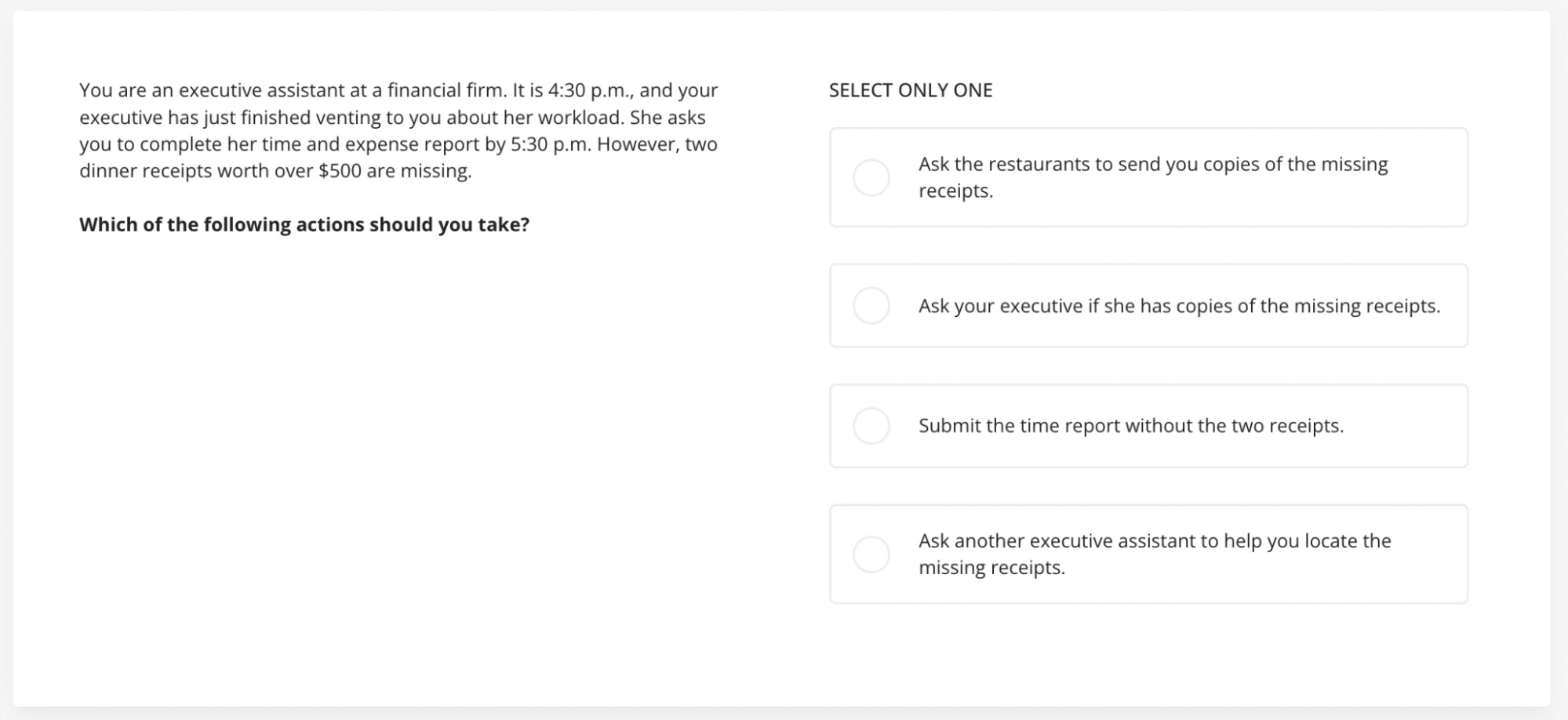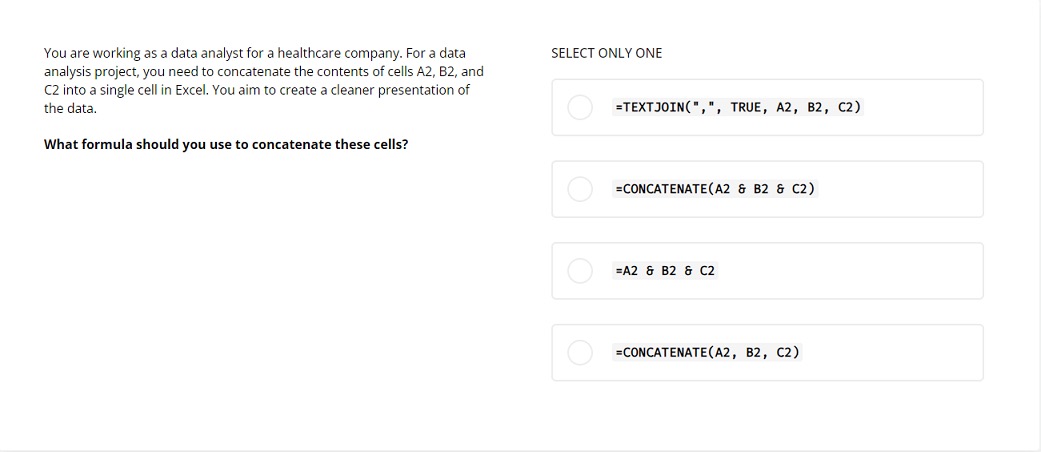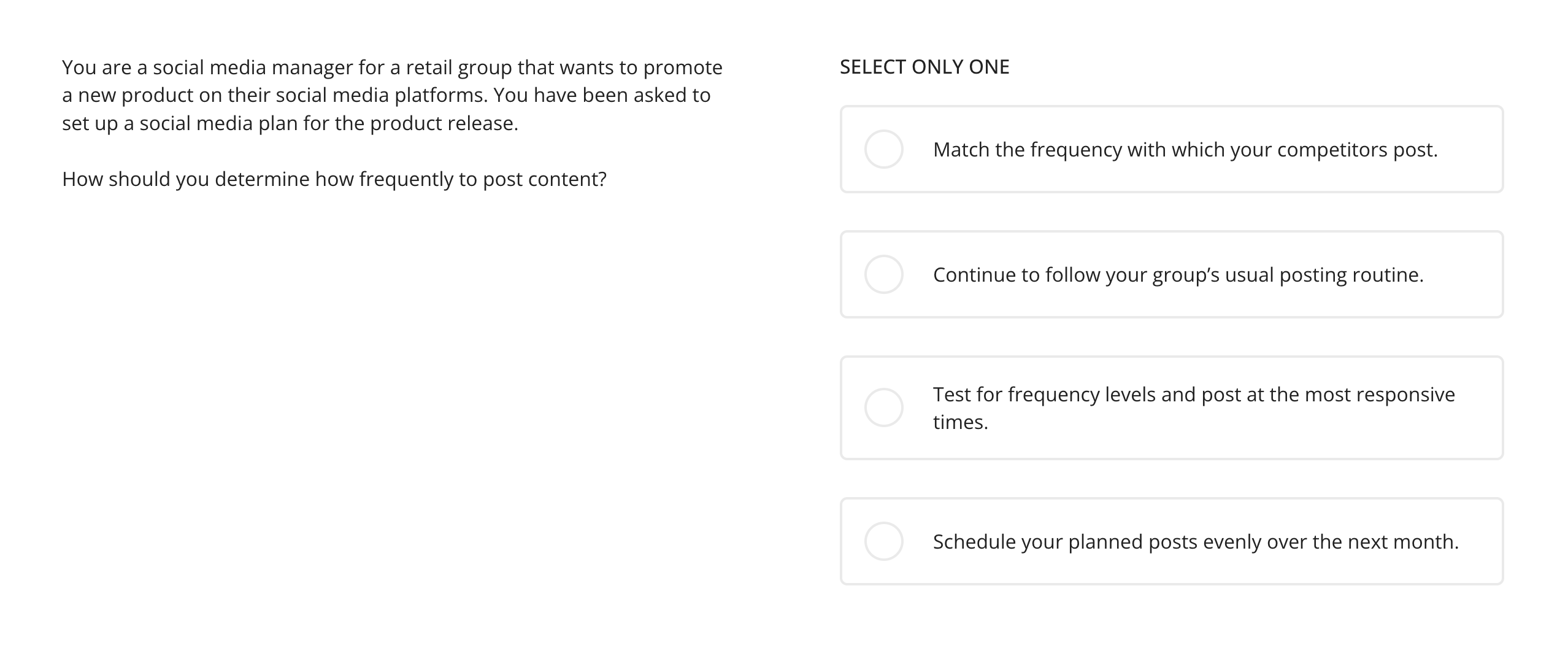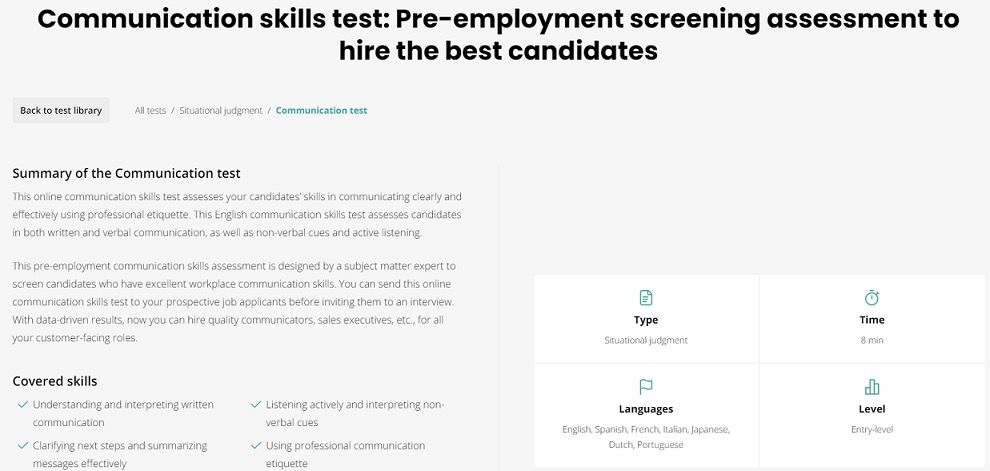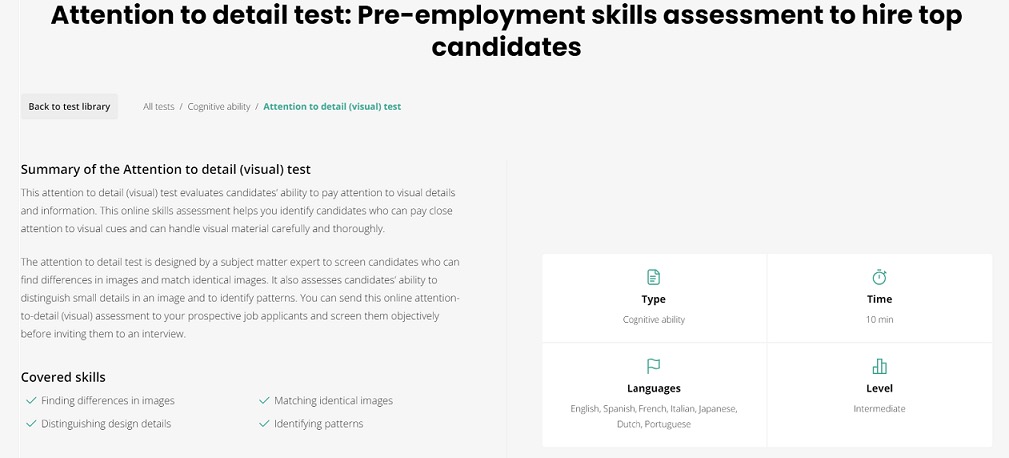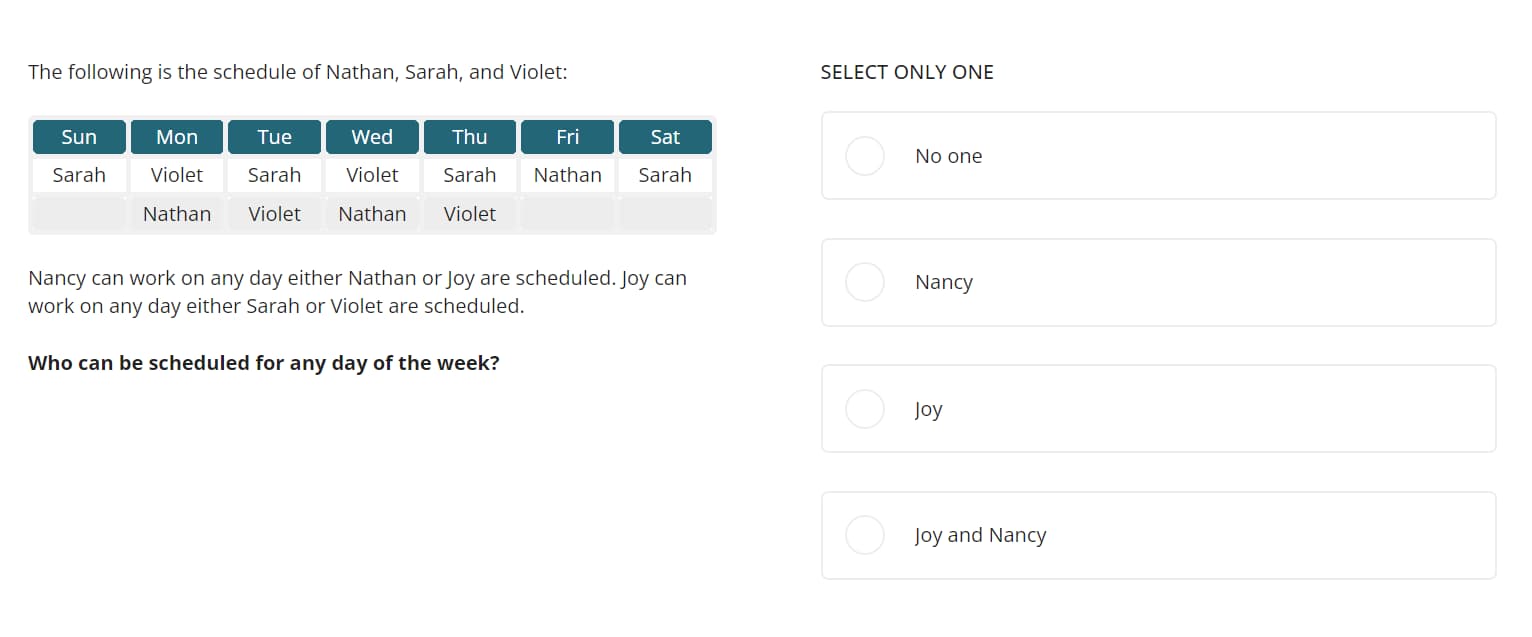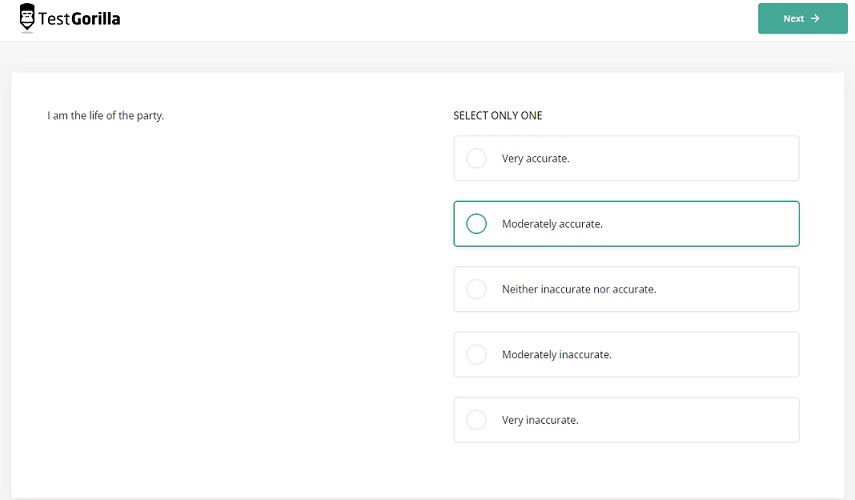How to hire an executive assistant: Skills to look for, plus a 5-step hiring guide
Executive assistants are the right hands of high-level office managers and executives.
As a hiring manager, a senior executive may ask you to fill an executive assistant role because they can no longer handle their workload. When you hire an executive assistant, pick a motivated candidate with strong time management, organizational skills, leadership qualities, and excellent communication skills.
An executive assistant also needs to understand the demands of the executive team and how they work. Consider your executive’s personality traits and find an assistant who can adapt.
In this article, we explore what an executive assistant is and what skill sets they need to perform their duties. We discuss how to use pre-employment screening tests to evaluate candidates’ skills, where to look for executive assistants, and how to hire one.
Table of contents
- What is an executive assistant?
- Why hire an executive assistant?
- 10 fundamental skills to look for in an excellent executive assistant
- 5 steps on how to hire an executive assistant
- How much does an executive assistant cost?
- Hire the best executive assistant with TestGorilla
- Hire an executive assistant FAQs
What is an executive assistant?
An executive assistant (EA) is a professional who provides administrative and organizational support to a high-level executive, such as a chief executive officer, a chief financial officer, or any other entrepreneur or business owner. The main responsibility of an executive administrative assistant is to support executives by:
Managing their correspondence
Making travel arrangements and handling calendar management
Being a point of contact between employees and the executive
Maintaining and refining internal company processes
Ensuring the executive and the company achieve their goals
Looking to hire someone more junior in a generalist admin role? Check out our administrative assistant job description template to start the process.
Why hire an executive assistant?
Busy executives hire executive assistants to better manage their tasks and responsibilities, especially time-consuming ones.
Depending on their needs, someone may hire an executive assistant to:
Deal with routine emails
Answer and screen phone calls
Attend meetings on their behalf
Fill in for administrative roles
Manage their schedule
Handle sensitive information
An executive should hire an EA if they struggle to attend to priorities every day and feel like they never catch up on their tasks.
Executive assistants enable corporate leaders to concentrate on their core business without prioritizing nonessential tasks. HBR research found that your company's investment in executive assistants is justified if they save even your C-level staff just a few hours a week.
The best insights on HR and recruitment, delivered to your inbox.
Biweekly updates. No spam. Unsubscribe any time.
10 fundamental skills to look for in an excellent executive assistant
Hiring executive assistants relies on recognizing skills and traits that help them support C-level leaders, making their lives more efficient and organized.
Hard skills for executive assistants
Hard skills are job-specific skills that can be learned and trained. Employees often need years of experience in a given field to have top-notch abilities with each skill.
These hard skills pertain to several facets of their role, ranging from secretarial work to social media management.
Hard skills | Description |
1. Administrative assistance | Hire an executive assistant who can manage dynamic situations easily, save time for their employer, strategically execute their tasks, and manage team members. |
2. Project management | Assistants to executives or office managers must have a keen understanding of the business’s project workflow and be able to delegate team members to project tasks on the executive’s behalf. |
3. Tech-savviness | Your executive assistant can use platforms to input data, draft documents, read charts and tables, and collaborate with other team members on important reports and presentations. |
4. Social media management | Assistants should know copywriting, community management, and strategy of what and when to post to show their employer in the best light. |
Soft skills for executive assistants
Soft skills are also important for executive assistants. They encompass skills that are not job-specific, are linked to a person’s personality, and are not easily trained. According to a study by LinkedIn, 92% of recruiters found soft skills equally or more important to hire for than hard skills.
These skills enable workers to figure out where their assistance is most needed and how to best communicate with the team and complete their tasks.
Soft skills | Description |
Communication | Executive assistants can convey information clearly and concisely, listen actively, and provide feedback when necessary. They also excel at written communication, such as emails, reports, and memos. |
Time management | The EA prioritizes tasks, plans and schedules meetings, and manages calendars, quickly adapting to changes. |
Attention to detail | The assistant can check and double-check work, proofread documents, and ensure that all information is accurate. |
Leadership | Anyone on the executive team should approach tasks with confidence, authority, and effectiveness. Leadership skills also help them think strategically, make informed decisions, and provide direction to others. |
Problem-solving | Problem-solving for executive assistants involves troubleshooting technical issues, managing conflicts between team members, and finding solutions to other challenges. |
People skills | Employees with people skills are empathetic and diplomatic. They work well with people from diverse backgrounds, build relationships, and expand their professional network. |
5 steps on how to hire an executive assistant
You need to follow these five steps to ensure job candidates have the executive assistant qualities you seek.
1. Consider your needs when you hire an executive assistant: Freelance vs. full-time
One thing to consider during your executive assistant hiring process is whether your executive needs a full-time or part-time/freelance EA.
The main thing to consider is workload.
If your executive has a temporary increase in their workload and they’re unable to cope, consider a freelance EA.
The freelancer should know what they’re doing off the bat, and they can pick up tasks quickly to free up time for the executive. You can also hire one while searching for a full-time EA, and once you find them, the freelancer can get them up to speed.
In addition, you can find a virtual freelance executive assistant that can perform tasks remotely. One of the main benefits of having a virtual assistant is that it costs less overall than an in-person one.
If the workload becomes too much and is constantly piling up, hire a full-time executive assistant instead.
The full-time EA picks up most of the menial tasks from the executive so they can focus on more important tasks.
Whether you choose a full-time or part-time/freelance executive assistant depends on the needs of your executive. Both options save them time and resources.
2. Write a job description
Your executive assistant job description should be unique to the position or executive you’re hiring for.
Don’t copy and paste an old job description. You may fail to communicate the specific needs of your current circumstances. Tailoring your job description for the particular executive assistant position is the first step to finding the right talent.
Executive assistant job description template
Let’s look at the template you can use when hiring executive assistants.
Job Title: Executive Assistant
Job Summary: We’re looking for an executive assistant to support our [executive] with coordinating their schedule, organizing and preparing documents, arranging travel, supporting board meetings, and serving as the eyes and ears of [executive] in company matters. The person we’re looking for needs to be flexible and adaptable, have a high level of discretion and be able to work in a fast-paced environment.
Main responsibilities:
Work directly with the chief executive officer
Maintain the executive’s calendar and scheduling their meetings
Oversee correspondence
Coordinate projects
Organize events
Serve as a liaison between the executive and other employees
Handle financial matters, such as tax returns and expense reports
Support the executive in any other way deemed necessary
Experience: Three years or more; overall, less important than practical qualifications and cultural add potential
Qualifications: Intermediate to advanced secretary or executive assistant technical skills and essential soft skills like communication and problem-solving
Salary: See our section below
3. Use talent assessments to hire the best executive assistant
Your executive assistant recruitment process needs to include pre-employment skills testing.
Skills testing helps avoid bad hires. In addition, it eliminates biased hiring because you’re evaluating based on merit and skills, not personal preferences.
You also save time and resources with skills testing. If you hire someone solely based on their resume, you might end up with an unqualified candidate. Once they start the job, you may realize they don’t possess the necessary skills.
If you dismiss them and start your search for an executive assistant again, you waste more time and resources than if you had used skills testing from the start.
That’s why we offer various tests that can evaluate an executive assistant’s skills before they even get to the interviewing stage, leaving you to choose from the top talent only.
These tests also help if you need to hire an executive assistant with niche skills. For example, Estrin Legal Staffing used our tests to quickly identify top talent and hire the best executive assistant for legal practices.
Here are eight tests you can use to assess executive assistants:
How to assess administrative assistance and leadership skills
TestGorilla offers an Executive Assistant test that covers most of the required skills for executive assistants. You can also test each skill individually to gain more insight into your candidates.
How to assess computer literacy skills
Using our Microsoft Office platform tests, you can evaluate candidates’ proficiency and find people who know the ins and outs of technology.
For example, you can test if your executive assistant has the right data analytics in Excel skills for your needs.
How to assess social media management skills
Our Social Media Management test covers these skills and ensures the person you hire knows how to use social media effectively to your advantage.
If you’re interested in sample questions, check out the Social Media Management test preview.
How to assess communication skills
The Communication test evaluates a candidate’s abilities to understand and interpret information, listen carefully, and use professional etiquette when necessary.
How to assess time management skills
Our Time Management test assesses candidates who can plan, prioritize, and execute projects promptly.
How to assess attention to detail skills
You can check candidates’ skills with the Attention to Detail test to ensure they can compare images, identify patterns, and match, filter, and scrutinize information.
How to assess problem-solving skills
The Problem Solving test pinpoints candidates who can define problems and analyze situations, finding the best solution to most challenges.
How to assess people skills
Use the Big 5 (OCEAN) test to discover what type of person your candidate is and which of the five overarching personality dimensions (openness, conscientiousness, extroversion, agreeableness, and emotional stability) they have.
With TestGorilla, you can also customize your tests to suit your needs.
Ready to hire the best executive assistant?
Are you ready to hire the best executive assistant with TestGorilla’s talent assessments?
4. Use executive assistant interview questions
After you’ve gone through your pre-employment skills testing, you need to interview your shortlisted candidates.
Follow our step-by-step guide on how to conduct an interview.
The interview is the final and most important step in your executive assistant recruitment process. You want to understand what motivates the individual and why they want the job and get a feel for the person who’s going to work with your executive day in and day out.
Unless you’re hiring a virtual assistant, we recommend conducting an in-person interview to represent the executive assistant’s hands-on involvement with their environment and coworkers.
We’ve compiled a list of questions that you can use during your structured interview:
What type of work setting brings forth your optimal performance?
What attracts you to this executive assistant position?
Can you give an example of a work conflict and how you resolved it?
How do you approach learning new software and staying up-to-date with technology?
What is your proudest achievement at your previous job?
What have you done at your current or previous organization to cut costs or save time?
The answers you’re looking for here should show how the candidate performs under stress, solves problems, and approaches learning and development.
You’re also looking for their source of motivation to work for you, what they’ve achieved, and how they evaluate themselves.
While you may be searching for specific answers, don’t forget that you want to understand how this person thinks and acts. They should be someone your executive can trust and delegate tasks to without hesitation.
You also know if your executive is outgoing or extroverted – a quality the candidate should match.
5. Know where to find executive assistants
When it comes to finding executive assistants, you have several options.
Let’s break them down.
Online job boards and freelance websites
You can post a job opening on various online job boards, such as Indeed or LinkedIn, where you can search for and reach out to potential candidates.
With LinkedIn becoming the world’s premium business network connections website, make sure you know what to expect when advertising there, including in terms of costs.
There are also several freelance websites, like Upwork, Freelancer, or Fiverr, where you can search for and hire executive assistants on a freelance or contract basis.
You can also ask for referrals from your professional network, industry contacts, or employees, which is a good way to find qualified candidates recommended by people you trust.
Top two job boards and freelance websites:
LinkedIn: Best for professionals
Upwork: Best for freelancers
Executive search firms and staffing agencies
Executive search firms specialize in finding top-level talent and can help you identify and recruit executive assistants. You can check this list on Forbes for America’s best executive recruiting firms.
Staffing agencies, like Adecco, can also help you find executive assistants. They typically have a pool of pre-screened and qualified candidates to recommend based on your specific needs.
Top two executive search firms and staffing agencies:
PriorityVA: Best for the signature vetting process
Adecco: Best for pre-screening
Social media channels
Making a sponsored post or ad on Facebook or Instagram can also be a viable way of finding candidates.
However, you’re bound to get a lot of unqualified candidates with this method, so make sure to use the right screening questions.
You can also use specialized sites for recruiting executive assistants. For example, startups can use Belay and Catena, which are geared toward executive assistants who can offer support to founders.
Other sites, like Worxbee, let you hire Fortune 500-level executive assistants.
Top two social media channels:
Zirtual: Best for hiring US-based college graduates
Catena: Best for cultural compatibility
How much does an executive assistant cost?
The average hourly rate of an executive assistant in the US is $34, but you can expect to pay between $30 and $39 per hour or an average yearly salary of $71,050.
Factors such as location, skill level, and industry determine how expensive your executive assistant is. Factor in whether they are freelance or full-time to calculate how much you spend.
For a more detailed breakdown of executive assistant salary, hourly wage, and factors like geography, check out our guide on what to pay an executive assistant.
Hire the best executive assistant with TestGorilla
Executive assistants support executives and other high-level managers in their work and daily lives.
When you hire an EA, their main role is to provide assistance and free up precious time for you to focus on more important tasks.
An executive assistant schedules meetings, oversees correspondence, and runs errands. They are the person who serves as the liaison between your employees and the executive, offers financial management, and prepares documents for important meetings.
With our high-quality assessments, you can test the skills you want in an assistant and easily hire an executive assistant who fits your needs.
Try out our demo to see how our tests work in practice.
In addition, our product tour gives you an overview of everything you can assess when hiring executive assistants.
If you want to try our product out before investing in a new hiring approach, register for a free forever plan and check out all we offer.
Hire an executive assistant FAQs
Here’s a look at some frequently asked questions to close out this deep dive into the skills of executive assistants and how to test them.
Why does a CEO need an executive assistant?
A chief executive officer needs an executive assistant to keep them organized, prioritize their time, and manage their resources effectively. Executives can delegate some of their tasks to their executive assistants, giving themselves the time to concentrate on their core business.
What are the roles of an executive assistant?
An executive assistant wears many hats. Some of their most important tasks include scheduling, tackling emails, answering and making phone calls, organizing and maintaining records, taking notes during meetings, and scheduling meetings and travel arrangements.
Should I hire an executive assistant?
Not every executive needs an executive assistant. Some senior employees can manage their workload on their own. However, you should hire an executive assistant if you need help with one or more of the following tasks:
Day-to-day office tasks that prevent you from addressing high-level duties
Communicating with all parties in a timely fashion
Staying on top of your email inbox and improving the client experience
Office organization and procedures
Filling in skills gaps, such as writing memos and content clearly
What makes a successful EA?
A successful EA must present themselves professionally as the representative of an executive and an ambassador of the company’s brand.
They know how to predict and meet the executive’s needs, network with potential clients, be fluent in technology, and have strong interpersonal skills.
Finally, successful executive assistants are adaptable team players who always collaborate, listen, and learn.
How do I hire a good EA?
Evaluate your needs
Create a thorough job description
Use talent assessments to evaluate the candidates’ skills
Ask the right interview questions
Use the right platform for your job posting
The best way to hire a good EA is to use talent assessments to evaluate the skills they need to be a successful assistant. Our Executive Assessment test is a good way to start assessing your candidate's ability to be a good executive assistant.
What are the top 3 skills of an executive assistant?
Most executive assistant skills are important to their success in the position.
However, if we had to narrow them down to three top skills, they would likely be managing administrative tasks, handling logistics and scheduling, and communicating professionally.
What are the ranks of executive assistants?
An executive assistant is a senior office staff member, working directly under the company’s top-level executives. For example, they could be the CEO's personal assistant, handling key administrative tasks. By contrast, other personal assistants and secretaries are typical entry-level roles.
Need a good personal assistant to support your CEO or other leaders? Read our personal assistant job description guide to attract the best candidates for the job.
You've scrolled this far
Why not try TestGorilla for free, and see what happens when you put skills first.


